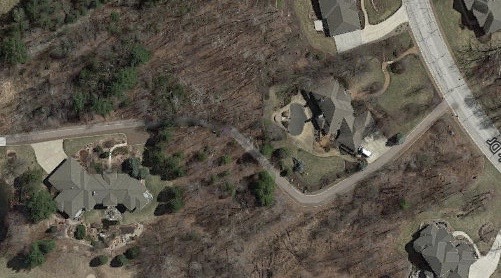 Reader Question: We are interested in a home that has a shared driveway. I cannot think of any pro, except maybe the shared cost to maintain. What are the cons to worry about with a shared driveway? Thanks! Chris Z.
Reader Question: We are interested in a home that has a shared driveway. I cannot think of any pro, except maybe the shared cost to maintain. What are the cons to worry about with a shared driveway? Thanks! Chris Z.
Monty’s Answer: Shared driveways are fairly common. Most often, there are written rules that “run with the land.” The rules are recorded on the subdivision plat as an easement or as a covenant on the deeds of the specific properties sharing the driveway. There are also instances where there is a separate deed for the real estate under the easement. These distinctions are important. How the covenants are memorialized may affect the outcome of a disagreement.
Questions to answer
Your comment about cost sharing is logical and in most cases will never be tested with the neighbor. If there are covenants describing the rules of sharing, what do they say about costs to repair or maintain? Is the driveway shared equally for the entire length? Are there restrictions on parking or repairing vehicles? Is the shared driveway easement recorded? Does it describe how any work is to be completed and whether any notices are required? How is it decided and who decides on the scope and quality of any work to be completed?
The disadvantage of a shared driveway is that “once in a blue moon” it can become a point of contention if the property owners have a disagreement. The disagreement itself may not have anything to do with the shared driveway but it becomes the fulcrum in an act of retribution.
Consequently, there are some homebuyers that will shy away from a property with a shared driveway. There are no published statistics about how often that may happen, it is fairly rare, but arguments do develop over shared driveways.
Steps for a buyer to take
Ask the real estate agent to produce a survey map and the shared driveway recording information to acquaint yourself with what is written. This exercise may be enlightening, but it may simply reassure you the developer had thought out all the possibilities in that particular layout. A key question is the actual ownership interest. The survey should contain the extent of the easement boundaries. A shared driveway does not mean equal ownership with other participants. It is possible that the entire driveway is owned by a neighbor(s) and you have certain rights to use the property.
Another option is to take the agent out of the equation and do it yourself. The act of hearing directly from the source reduces potential misunderstandings. A visit to the register of deeds office or poking around for the information in the county GIS system online may reveal a layer of information that includes an easement or a recorded document.
Your choices
If concerns arise after reviewing the covenant, or there are no covenants, but you envision a scenario or two that could spark disagreement, you have choices:
- Write the offer subject to the seller obtaining a written agreement describing the shared driveway with the property owner(s) involved as a condition of the purchase. The agreement should be recordable, cover cost allocation, who decides how to repair or replace, how the work is to be completed and any required notices. Consider a legal opinion for proper wording.
- Accept the property “as is” in this regard as you cannot envision any issues developing in the future.
- Make the decision not to pursue the property.
Consider a couple of other tasks as sources of information that are closer to the driveway than this answer. Call two or three registered land surveyors and simply ask if they have seen shared driveway disputes in their work experience in the past, and how often it happens. You are conducting due diligence to gather information that may help with your decision.
Consider a meet-up with your potential new neighbor. A quick visit to see if they have any information about the house; or the driveway specifically. Depending on the configuration of the driveway, it would not be a shock if they were not aware of the shared driveway. Keep in mind that the neighbor may sell the house one day, and you will have a new neighbor with a common interest.
When you have completed your due diligence on the shared driveway, you will have enough information to make the decision as to whether it is a concern, or not.
